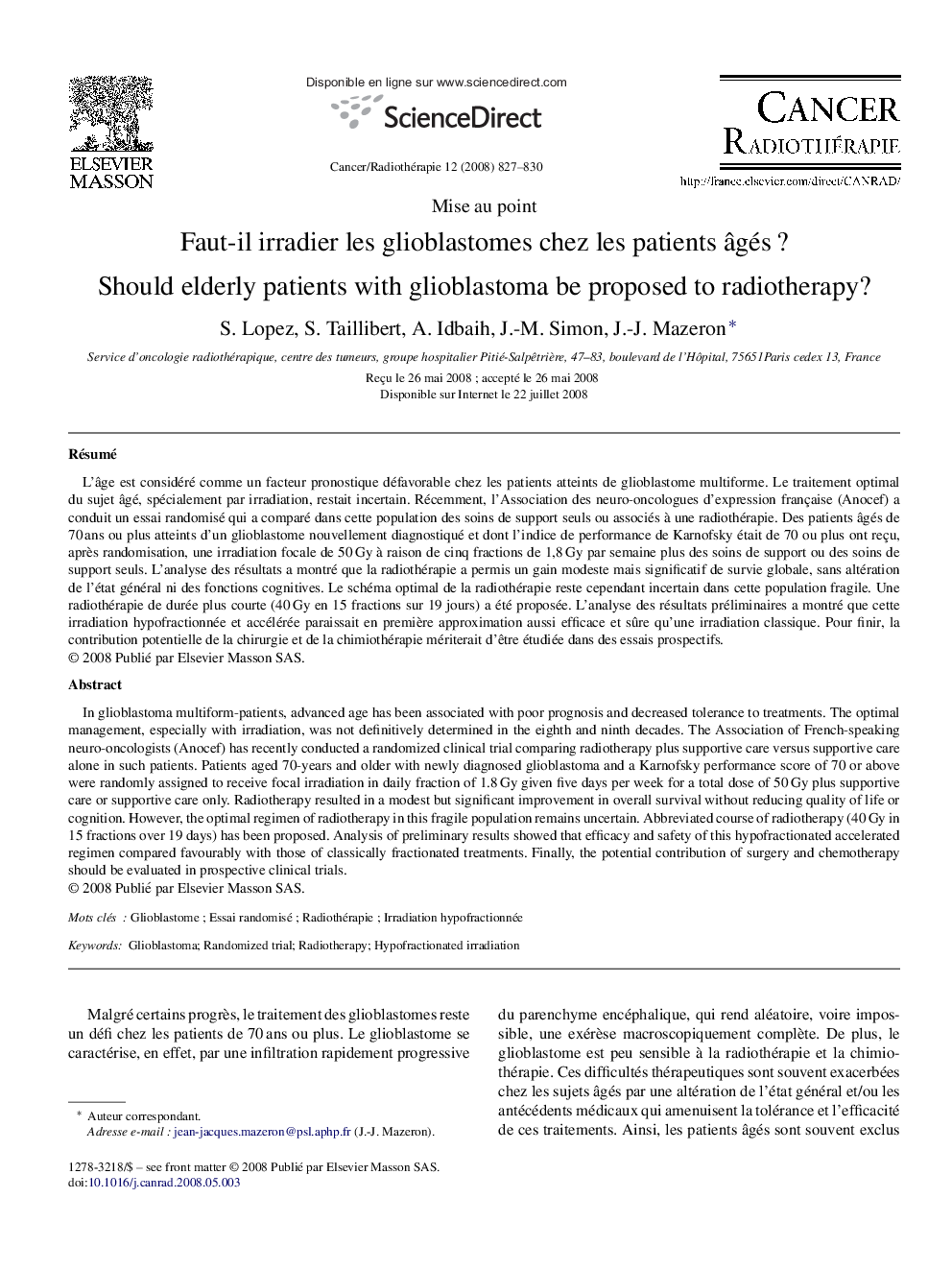| Article ID | Journal | Published Year | Pages | File Type |
|---|---|---|---|---|
| 2119193 | Cancer/Radiothérapie | 2008 | 4 Pages |
RésuméL’âge est considéré comme un facteur pronostique défavorable chez les patients atteints de glioblastome multiforme. Le traitement optimal du sujet âgé, spécialement par irradiation, restait incertain. Récemment, l’Association des neuro-oncologues d’expression française (Anocef) a conduit un essai randomisé qui a comparé dans cette population des soins de support seuls ou associés à une radiothérapie. Des patients âgés de 70 ans ou plus atteints d’un glioblastome nouvellement diagnostiqué et dont l’indice de performance de Karnofsky était de 70 ou plus ont reçu, après randomisation, une irradiation focale de 50 Gy à raison de cinq fractions de 1,8 Gy par semaine plus des soins de support ou des soins de support seuls. L’analyse des résultats a montré que la radiothérapie a permis un gain modeste mais significatif de survie globale, sans altération de l’état général ni des fonctions cognitives. Le schéma optimal de la radiothérapie reste cependant incertain dans cette population fragile. Une radiothérapie de durée plus courte (40 Gy en 15 fractions sur 19 jours) a été proposée. L’analyse des résultats préliminaires a montré que cette irradiation hypofractionnée et accélérée paraissait en première approximation aussi efficace et sûre qu’une irradiation classique. Pour finir, la contribution potentielle de la chirurgie et de la chimiothérapie mériterait d’être étudiée dans des essais prospectifs.
In glioblastoma multiform-patients, advanced age has been associated with poor prognosis and decreased tolerance to treatments. The optimal management, especially with irradiation, was not definitively determined in the eighth and ninth decades. The Association of French-speaking neuro-oncologists (Anocef) has recently conducted a randomized clinical trial comparing radiotherapy plus supportive care versus supportive care alone in such patients. Patients aged 70-years and older with newly diagnosed glioblastoma and a Karnofsky performance score of 70 or above were randomly assigned to receive focal irradiation in daily fraction of 1.8 Gy given five days per week for a total dose of 50 Gy plus supportive care or supportive care only. Radiotherapy resulted in a modest but significant improvement in overall survival without reducing quality of life or cognition. However, the optimal regimen of radiotherapy in this fragile population remains uncertain. Abbreviated course of radiotherapy (40 Gy in 15 fractions over 19 days) has been proposed. Analysis of preliminary results showed that efficacy and safety of this hypofractionated accelerated regimen compared favourably with those of classically fractionated treatments. Finally, the potential contribution of surgery and chemotherapy should be evaluated in prospective clinical trials.
